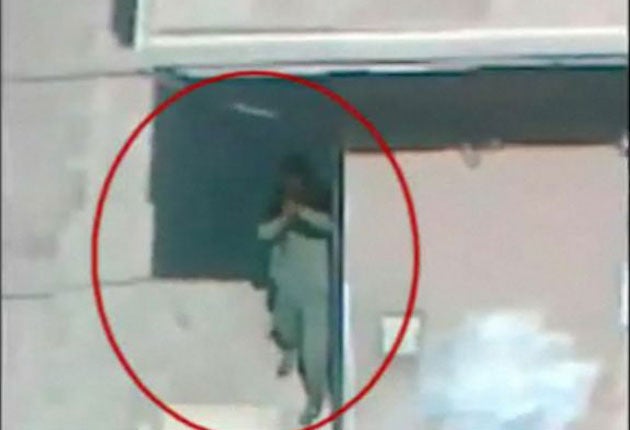Syrian forces 'targeting mobile-phone videos'

Your support helps us to tell the story
From reproductive rights to climate change to Big Tech, The Independent is on the ground when the story is developing. Whether it's investigating the financials of Elon Musk's pro-Trump PAC or producing our latest documentary, 'The A Word', which shines a light on the American women fighting for reproductive rights, we know how important it is to parse out the facts from the messaging.
At such a critical moment in US history, we need reporters on the ground. Your donation allows us to keep sending journalists to speak to both sides of the story.
The Independent is trusted by Americans across the entire political spectrum. And unlike many other quality news outlets, we choose not to lock Americans out of our reporting and analysis with paywalls. We believe quality journalism should be available to everyone, paid for by those who can afford it.
Your support makes all the difference.One of Syria's leading human rights activists has claimed that protesters shooting videos on their mobile phones are now being deliberately targeted by the security services as the government tries to get a grip on the propaganda war.
Radwan Ziadeh, who has become one of the most prominent opposition figures outside Syria since the uprising began in mid-March, said that the security services were now trying to forestall negative media attention by sweeping through neighbourhoods before operations and ordering civilians not to film them.
It comes after disturbing footage emerged of a man apparently being shot while filming a gun-toting soldier in Homs on Friday. The video, uploaded on to YouTube over the weekend, shows an unseen cameraman trying to film the soldier from what appears to be his balcony.
As gunshots echo all around and the shouts of protesters are heard in the distance, the lens focuses on a gunman below just as he points his rifle up towards the cameraman.
A loud shot is then heard, after which the camera falls to the floor, followed by the sounds of voices wailing and crying out for help. There is no way of establishing if the footage is genuine.
According to Radwan Ziadeh, the security services are now trying to get a grip on the daily flood of video evidence against them by deliberately targeting protesters. "First they send people in plain clothes to target people on the balconies. They tell them to get inside their homes and sometimes fire into the air or threaten them. Then they send the security men in uniforms."
The internet has played a pivotal role in Syria's 14-week uprising – perhaps more so than in any of the other Arab insurrections.
Numerous videos have emerged offering evidence of government brutality, most notably the footage of Hamza al-Khatib, the Syrian schoolboy who was tortured to death in police custody and who became a cause célèbre when shots of his battered body were posted on YouTube after it was returned to his parents in May.
Given the power such videos have to fuel anti-government feeling, it is no wonder the government appears determined to crack down on them.
"For a long time the security services have been confiscating footage from people they arrest," said Nadim Houry, a senior researcher for Human Rights Watch based in Beirut.
Join our commenting forum
Join thought-provoking conversations, follow other Independent readers and see their replies
Comments